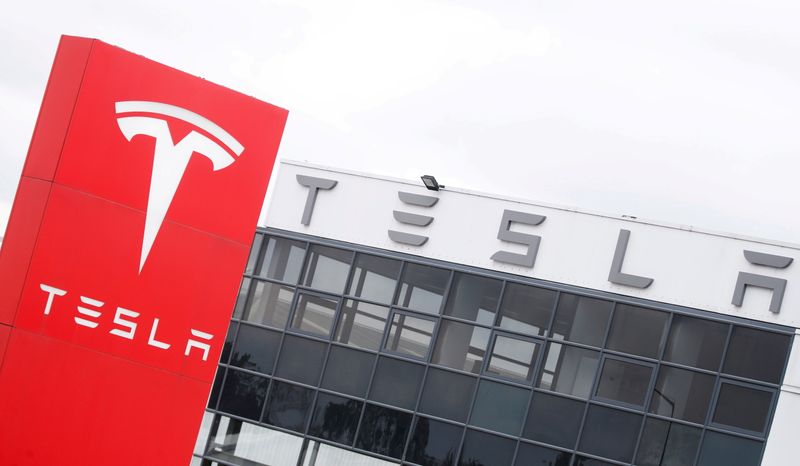By Ambar Warrick
Investing.com -- Shares of major Chinese electric vehicle (EV) makers and battery producers fell on Thursday, tracking steep overnight losses in Tesla Inc (NASDAQ:TSLA) after the firm’s quarterly results missed estimates following a string of aggressive price cuts this year.
Hong Kong-listed shares of Li Auto Inc (HK:2015) (NASDAQ:LI), BYD Co Ltd (HK:1211), NIO Inc (HK:9866) (NYSE:NIO), and XPeng Inc (HK:9868) (NYSE:XPEV) fell between 0.5% and 7%, with XPeng losing the most among its peers.
Shenzhen-listed shares of Contemporary Amperex Technology Co Ltd (SZ:300750) (CATL), which is a major battery supplier to Tesla, also lost 2.3%.
Losses in Asian stocks came after Tesla sank around 6% in after-hours trade, as its quarterly profit and gross margins missed estimates after the firm cut the prices of its cars at least six times this year.
CEO Elon Musk also doubled down on the price cuts, stating that the EV maker will prioritize sales growth over profit in worsening economic conditions. The move marks an escalation in Tesla’s bitter price war to capture market share from legacy automobile makers in the U.S., while also looking to expand its footprint in China, its biggest market.
Tesla’s discount spree started with China, as it sought to compete with much cheaper and more competitive offerings from local peers. But this invited similar price cuts from Chinese EV makers, which analysts warn could dent industry profitability.
XPeng founder He Xiaopeng warned that increased competition could result in the weeding out of some local players. Analysts also cautioned that Tesla will likely have to cut prices further in order to appear more competitive.
Tesla’s Chinese competitors also unveiled a slew of less expensive models this week, with plans to capture export markets in Asia, the U.S., and Europe. Warren Buffett-backed BYD, China’s largest EV maker, unveiled a budget 'Seagull' model at the Shanghai auto show, with a retail price of about $11,000 - a fraction of the prices charged by other manufacturers.
Data this week showed China’s EV sales rose about 30% so far this year, also boosted by pent-up demand after the country relaxed most anti-COVID measures at the beginning of 2023.
